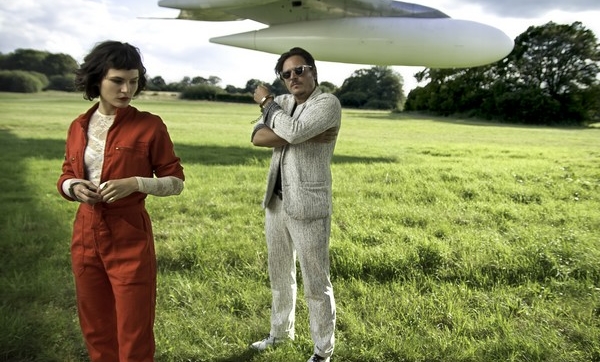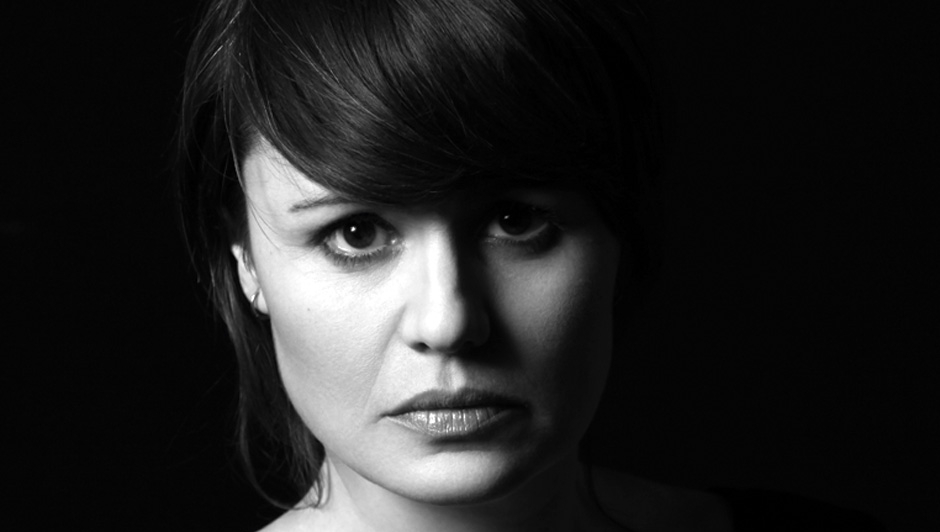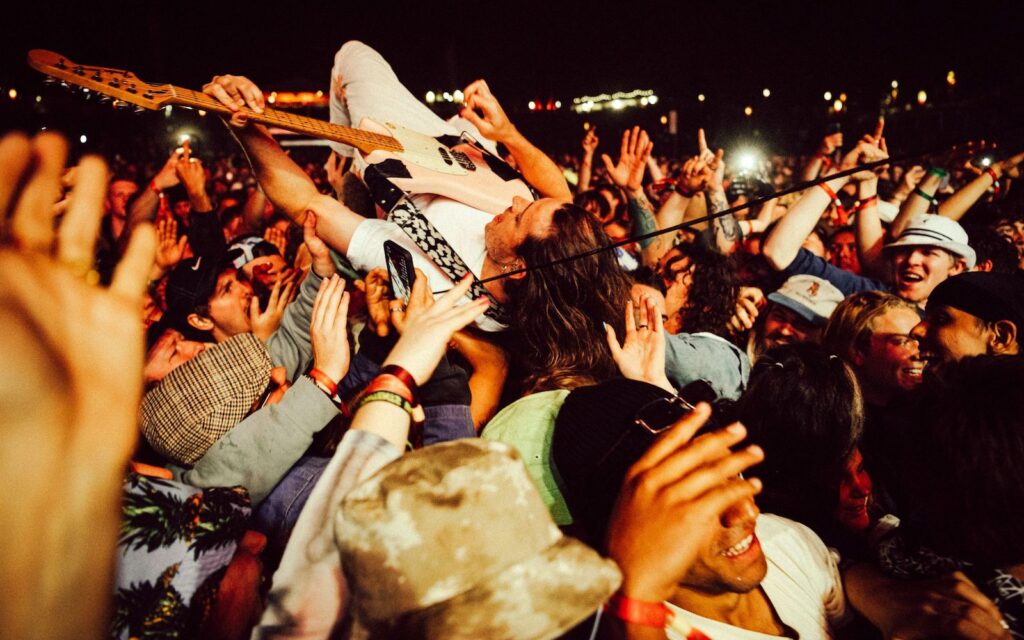“The first stage is sending each other a lot of ideas and tracks,” she explains. Her accented English is quiet but very focused. “Finding inspiration from other people. Images. It’s very broad to start with. Then Dan [Levy] will send me beats, or a line or a verse that he recorded and I’ll send him the same kind of thing, and that’s how we’ll find our way. We’ll select the songs we want to write together and spend three or four days on each one, then separate and work on new stuff. That’s how it goes. This one did have a slightly different method, and it was interesting, because I didn’t stay so long in the countryside at the studio. We had to kind of be, well, maybe not more efficient, but straight to the point. That was the main guideline for the album.”
Given one of the hallmarks of the record is the complete absence of acoustic instruments, a water tower plucked from Jane Eyre seems an unexpected place to draw inspiration. Studded with electronic beats and urban soundscapes, some underground, graffiti-strewn basement somehow seems more fitting. For Merilahti though, setting has never been a chief concern.
“It’s not as important for me. I can write on the road, be inspired wherever I am. I’ll just get away. If I don’t like where I am, I’ll just write a song. It’s like escapism. But at the same time, I don’t think we ever really realised how important [location] is. For example, we recorded this album in the countryside, but we’d already decided that we wanted somehow an urban album, something close to the city, with horizontal and vertical lines. We finished I Need to Know in New York, we re-recorded it completely there with Fab Dupont and that was crucial. We were really inspired by New York, so it has a different energy. I think it’s a little bigger than the other songs, which is interesting. So obviously, whether we like it or not, we’re influenced by the places we record.”
With the exception of Dupont’s involvement, one of the most striking aspects of the album’s genesis is the development and recording was kept entirely between Merilahti and Levy. The motivations for such an approach are, on the surface, easy to appreciate; the record might be kept as pure and personal to their original intention, their undistilled voice. Yet The Dø have been quite vocal in the past about their influences, and the inspirations they’ve received from hip hop and club music are strong. It makes for an intriguing blend; this need for self-sufficiency balanced with a desire to respond to the rest of the music world.
“That’s interesting. That’s how we’ve worked from the beginning. It’s always been the two of us in the studio for a year or so, that’s how it naturally works in The Dø. It’s about keeping it pure, but it’s also how we push ourselves to do something we’ve never done before. We challenge each other and want to surprise each other, that’s the dynamic we have. We also fight a lot,” she laughs, “but in the end we’re happy because we reach where we wanted to go. Obviously we need to be inspired, and we’ll listen to some music along the way. It’s difficult to really say why or what we’ll listen to. Yeezus was a kind of shock to us, we were recording the album and the minimalism and the strength of that album was really a lesson.”
As a result, the band’s catalogue is remarkably varied, and though difficult to qualify, there’s an energy to their tracks that’s sustained no matter the genre. With elements of hip hop, roots, pop and rock, each album is unmistakably The Dø. For those uninitiated with the French/Finnish duo, a fine place to start is their live recording of Slippery Slope from Studio Pigalle. Full of gorgeous horns and tribal drums, the sound is incredible. It does make for a curious contrast however now the band has moved into this new, electronic direction. Born from the practicalities of shifting a full band from gig to gig, The Dø quickly found themselves enamoured by the necessary changes in performance.
“The last tour had so many different stages, and we started as a full six-piece band with only acoustic instruments, which were impossible to travel with. So we had to strip it down to a four-piece, and find certain practical solutions, because we weren’t able to play everything live any more. That’s when we started to use drum machines and sequences on stage, and it was a discovery for us, we really enjoyed it,” Merilahti exclaims. “It was somehow always more logical for the sound that we had in the studio, it felt really natural. So I think it started from there. We were also really obsessed with hip hop; we listened to more electronic sounds and that kind of thing. So it started that way, and we kept it that way. It became our ultimate direction for the album.”
Though this direction may not be one that followers from their early days are expecting, it’s difficult to imagine they’re going to jeopardise their fan base; it’s a strong album with a lot of variety. There’ll, of course, always be those critical of a band who has the gall to move beyond their first release, but so far the (very fresh) reception for Shake, Shook, Shaken has been entirely positive.
“We just performed it for the first time in Paris last week. It was, how can I put this?
The energy is definitely different. Dan is on the hybrid electronic drums, and we’ll still have guitar, still have bass, a few real instruments. ‘Real instruments,’ whatever that means,” she laughs. “[There’s] a lot of synth. But the challenge is just to make everything look really lively and sweaty somehow, and I think it works. It was really great to finally sing them in front of people, and it gave me goosebumps. Right now, we’re having a lot of fun. More than ever before, I can’t wait to get on the road again properly. We played the V Festival in 2009, that was the only tour in Australia we did, but I heard such great music. It was a really fun time. I’m just hoping it’s not only going to be a French audience, nothing but expats. Hopefully some actual Australians will be getting along. I’m excited.”
Merilahti is hard-pressed to say what avenue she expects her writing and music to take next. The process seems happenstantial, with songs conjured from the unexpected, rather than through deliberate choices. There’s a touch of something magical to the process, as though Merilahti would not be able to turn off these songs even should she want to; an electronic Sorcerer’s Apprentice. It’s doubtful she would have it any other way.
“Writing is a lot more difficult. Writing is something I don’t find permanent somehow, [it’s] not as intuitive, so it takes a long time. It comes from the brain more than the music, so there’s this censorship that’s always present. It doesn’t come out as easily, but still I love it. I should write every day, but I don’t. I think someday I’d like to write some kind of book of poems, that could be something that I’d like to do. Surreal, or very realistic, I don’t know. For me, it’s always surreal in a way, because it goes through my imagination, it’s not just relating things directly. But music, music is permanent. It’s like your blood flow. It’s always ready to come out somehow.”
BY ADAM NORRIS







